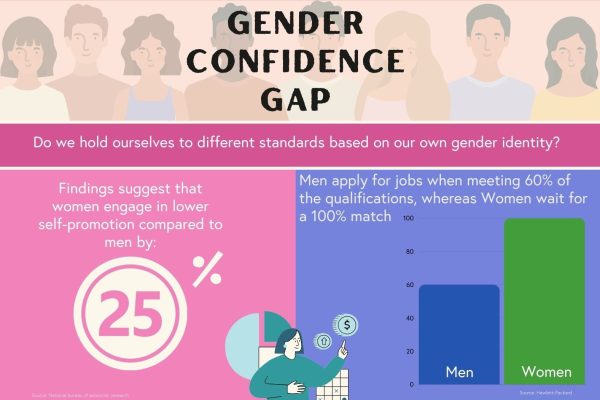Behavioural and Cognitive Professional Development Report 2016
9 min read
Part 1: The state of behavioural and cognitive development in the professional services industry
Introduction
In 2015, hundreds of participants from some of the world’s top and best-known professional services firms attended our behavioural and cognitive development programmes.[1]
The top professional services firms remain dedicated to improving the knowledge, experience and capabilities of their people and understand that investing in ongoing professional development is fundamental to initiating behaviour change and to the future growth of their firm.
Following every programme we ask participants a set of questions about how they plan to embed the learning at their firms and what difficulties they anticipate in applying what they have learned.[2]
Having analysed over a thousand participant responses to these questions over the past year, we have been able to gain a snapshot of the key issues facing the top professional services firms in the world today with regards to professional development and behaviour change.
Please note that the analysis gives equal weight to each respondent, whatever size of the firm and is essentially a sentimental survey, with all the strengths and weaknesses of such an approach.
Our findings have been split into two sections:
Section 1: Developing and using key human professional services skills and behaviours
Section 2: Changing behaviour, provoking mindset change and embedding learning
Executive Summary
Our research suggests the fundamental skills and behaviours required of those working in professional services are not intuitive and still need to be codified, learned, practiced and refined, especially in relation to critical thinking, communication, presenting with impact and business development.
Using critical thinking as an example, our findings suggest that despite the clear benefits, before attending a formal training event, individuals do not regularly use a structured analytical thinking process in their everyday work. Individuals that do have prior knowledge of the required process and skills, frequently find an inability to apply the theory in everyday activities often due to a scarcity of time (even though the use of the process saves time!) and senior management support.
With regards to instilling behaviour change and embedding the learning, participant data shows that culture and prevailing mindsets in professional services firms still create barriers.
There continues to be a disparity in some firms between the new behaviours and processes that employees learn, which should be to the benefit of their firms and how their performance is actually measured and rewarded once they are back in the workplace. Similarly, Senior Managers often do not embody the behaviours or know the same processes that they are asking their more junior employees to utilise.
Participants’ responses suggest that behaviour change in professional services is not being effectively achieved because:
i. The act of sharing best practice and learning is not widely encouraged and mechanisms for sharing are rarely in place. Hence, employees simply go “back to the way we have always worked”;
ii. The prevailing culture in many professional services firms (short-term, metric-focused, ‘activity-driven’) means behavioural change is not always supported.
Section 1: Developing and using key professional services skills
1. Despite clear benefits and good intentions, a cohesive, structured analytical thinking process is rarely applied within firms:
i. Lack of shared knowledge and a unified, consistent process across the firm
ii. Inability to apply critical thinking in everyday work due to ‘activity pressure’
2. Professional services firms struggle with many of the same developmental issues:
i. Presenting skills do not come naturally
ii. A need to have better conversations with clients to deliver insights and find new value
iii. Knowing when to say ‘Go’ or ‘No Go’ to Request for Proposals
iv. Over-reliance on PowerPoint slides
Key ‘human’ skills and behaviours for success do not come naturally
The responses to our post-programme questions suggest that, for many working in professional services, certain key cognitive and behavioural skills such as client communication, presenting skills, business development and critical thinking do not come naturally and additionally, when participants have acquired new skills and tools, despite clear benefits to both their firm and their clients, once back in the workplace they feel unable to put these new processes to full use as a result of activity pressure, lack of support from Senior Colleagues and a lack of shared methodology throughout the firm.
Most participants acknowledge that their firms want them to adopt an ‘advisory’ or ‘consultative’ approach with clients. However, to adopt this approach and find new value for clients, identify new growth opportunities, deliver fresh perspectives and communicate unique insights, participants recognise that they did not have the key skills or tools required. In short, a ‘consultative’ approach is not an intuitive activity for most participants.
Unlike technical knowledge, which is a pre-requisite in professional services, key skills and behaviours needed to succeed must first be demonstrated and then given the opportunity to be modelled, coached, practiced and refined on an on-going basis if they are to be fully embraced.
1. Despite clear benefits and good intentions, a cohesive, structured analytical thinking process is rarely applied within firms
Most professional services firms agree that critical thinking, finding insights and knowing how to develop a ‘Point of View’ are essential skills for those working in their organisation but a large majority of participants acknowledge they do not undertake a structured ‘analytical thinking process’ in their work on a regular basis, if at all. Participants tell us that as a result of more knowledgeable clients, a highly competitive landscape and an abundance of data now available to businesses, the ability to apply an analytical approach is more important than ever.
So why is a rigorous, consistent thinking process not applied on a regular basis despite the many internal advantages (identifying opportunities, innovation and idea generation) and external opportunities for clients (insights, finding new value, growth opportunities) that a structured analytical thinking process creates? Two main reasons emerge from the data:
i. Lack of shared knowledge and a consistent, unified process across the firm
Participants regularly acknowledge that before attending our programmes they simply did not know all the key stages of the analytical thinking process (such as scoping, forming hypotheses, using a data matrix, forming a logic diagram). They very often have an idea of certain aspects, but not a complete picture of the entire process. Our feedback supports recent studies which suggest critical thinking is not being taught sufficiently in higher education or during professional qualifications, where technical knowledge is given precedence.
ii. Inability to apply critical thinking in everyday work due to ‘activity pressure’
Participants recognise that once they have learned the theory behind the analytical thinking process, they should be using this approach regularly when back in the workplace. However, respondents tell us that applying critical thinking in everyday work is hard to achieve, largely due to ‘activity pressure’. There simply is not enough time to reflect, pause, breathe, pre-sort ideas and think during the working day.
One reason given by participants for this ‘activity pressure’ is that prevailing metrics used by managers in professional services firms (utilisation, hours billed etc.) measure and reward the opposite behaviours to which participants have been trained. An ‘output-driven’ approach means there is not sufficient opportunity or incentive to spend time adopting a structured, analytical approach. What’s more, participants tell us that Senior Managers often do not use the tools and strategies that they have been asked to adopt because leaders too are driven by the prevailing metrics.
Professional services firms and in particular those working in senior positions often fail to appreciate (and participants tell us they come to realise) that using a structured analytical thinking approach will save time and deliver more reliable and robust client engagements, with unique insights, conclusions and recommendations which will satisfy any performance metric in the longer term.
Our participants admit that “diving straight into a problem” without looking at the bigger picture often causes them to get “lost in the data” or to “look for answers in the wrong places” leading to inefficient use of time and often weak conclusions and recommendations.
2. Professional services firms struggle with many of the same developmental issues, particularly regarding presentation skills, client communication and business development
The responses to our post-programme questions illustrate that many professional services firms and their employees struggle with the same developmental issues, particularly regarding presenting with impact, undertaking client conversations and business development.
The four most common issues identified by participants include:
1. Presenting skills do not come naturally – many participants admit that they are not entirely comfortable presenting internally or to clients. Knowing how to create status, influence the audience and use ‘storytelling’ are three areas regularly identified as requiring further practice.
2. A need to have better conversations with clients – Participants are clear they often do not have very productive conversations with their clients. In particular, they do not spend enough time trying to understand their clients’ mindsets. Participants recognise that they spend too much time broadcasting and ‘selling’ themselves (i.e. “why we are different”) and not enough time asking structured questions and trying to truly understand their client’s context.
A large number of participants admit they struggle to ask difficult questions of their clients and find it hard to tell their clients something that they don’t already know. That is, participants know how to generate a Point of View and think critically, but are often unsure how to communicate this valuable insight to the client or their colleagues internally.
3. Knowing when to say ‘Go’ or ‘No Go’ to Request for Proposals – Participants concede that they will regularly pursue any opportunity without taking proper consideration of their chances of winning or whether they would actually want to win. Participants admit that saying ‘No Go’ more regularly could save significant time, money and resources but in reality they are often not honest enough with themselves about the chances of winning the work.
4. Over-reliance on PowerPoint slides – Participants universally acknowledge they need to move away from the idea that presenting large amounts of data is a good thing. Whilst a simple commitment in theory, which could be applied relatively easily, participants find the change much harder to apply in reality. Perhaps this is a result of pressure from senior colleagues that documents or presentations need to have a ‘thud’ factor when presented to a client and the perceived ‘security’ in large amounts of data – it justifies our work and our opinions.
Section 2: Changing behaviour, provoking mindset change and embedding learning
1. Behaviour change can only become organisationally embedded if key behaviours, ideas and processes are modelled firm wide
2. Individuals need to exercise self-awareness, self-discipline, self-motivation and take personal responsibility for change
3. Firms committed to development will need to adapt their culture, adopt consistent values and aspire to a common goal and objective. Behaviours have to be consistently modelled throughout the firm.
When participants complete a learning programme they leave energised to take the learning and new processes back to their workplace and to apply it on a regular basis. However, they frequently report that culture and prevailing mindsets create barriers to behavioural change and do not allow their learning to be embedded as effectively as desired.
While participants once again use ‘lack of time’ regularly as a reason, there are three key insights that emerge from the data regarding behaviour change, with implications for all professional services firms:
1. Behaviour change can only become organisationally embedded if key behaviours, ideas and processes are shared firm wide:
For behaviour change to succeed, participants must be able to share their newfound learning with colleagues and demonstrate that the new way of working is better for all parties (internally and externally). One comment regularly made is that “behaviour will not change because my peers and managers don’t know the processes I have now been taught.”
Firms need to enable individuals to share knowledge; between departments, teams and locations for behaviour change to occur. Employees should be encouraged by their senior colleagues to use their new skills and share positive stories about applying their knowledge in practice so that peers can also copy and learn.
2. Individuals need to exercise self-awareness, self-discipline, self-motivation and take personal responsibility for change:
Most participants acknowledge they must take personal responsibility for ensuring behavioural change happens. Individuals must personally commit to force themselves to apply the new learning and ensure they do not go back to their usual routines and everyday activities and approach the change with discipline and rigour. Participants recognise they have to make a concerted effort to unlearn their current behaviour and embody the right behaviours for their colleagues to witness and copy. However, consistent coaching and mentoring support from above is critical.
Too often, participants tell us they will not be able to adopt the learning and change their way of doing things because their senior managers and Partners will not allow them the necessary time and space to use their knowledge in everyday scenarios. The organisation preference is to jump straight into problems and potential opportunities without the prospect of critical thinking or following a clear methodology. Conclusions are rushed, and pre-determined recommendations can be a product.
3. Firms committed to development will need to adapt their culture, adopt consistent values and aspire to a common goal and objective. Behaviours have to be consistently modelled throughout the firm:
Participants regularly tell us it is the overriding culture of their business that stops behaviour change occurring and it is their senior colleagues who actually create the barrier to learning being embedded and used in everyday situations.
Professional services firms can be shortsighted in nature. Metrics such as utilisation, revenue targets and recovery rates are still prime measures of success in professional services organisations and respondents tell us that firms remain in an ‘activity-based’ mindset. As one participant told us, “everything is an emergency.”
It appears that there continues to be a disparity in some firms between the new behaviours and processes that employees learn, which should be to the benefit of their firms, and how their performance is actually measured and rewarded back once they are back in the workplace. Similarly, Senior Managers often do not embody the behaviours or know the same processes that they are asking their more junior employees to utilise.
It is clear from our results that consistent behavioural modelling is needed for behaviour change to occur. Those with authority to set goals and objectives need to move away from a mindset focused on metrics and instant results and move towards company-wide values that encourage peer-to-peer idea sharing, time for critical thinking and the adoption of common methodologies and processes.
PART 2: Key Trends and Implications for 2016
In Part 2 of the report we have determined the key trends that will affect the professional services industry and the possible implications for firms with regards to learning and development strategy, managing client relationships and behavioural change…
Click here to read Part 2 of our Behavioural and Cognitive Professional Development Report 2016
References:
[1] Clients include: Global Management Consulting Firms, ‘Big 4’ firms, Multinational FMCG Organisations, Global Telecoms Companies and International Food and Beverage Companies.
[2] At the end of every programme, we ask participants to formulate certain key commitments as a group that they must then commit to going forward. The key questions we ask participants are
– What advice would you offer to your colleagues about the concepts covered in these sessions?
– What suggestions do you have in terms of organisational changes that would accelerate the adoption of these ideas across the firm?
– What are you willing to be personally responsible for, to help create a momentum for change?
We also ask all participants to complete a feedback survey to inform our future activities but more importantly to pass on key insight to our clients from their own employees and Partners. Two key questions we ask are:
– What three things that you have learned will be of most value to your future work?
– What difficulties, if any, do you anticipate in using what you have learned?



